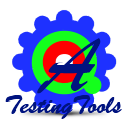The Internet of Things, a term used to describe a vast web of everyday objects like refrigerators, cars and lamps with embedded IP connectivity, is one of the biggest tech trends today. For enterprise test management professionals, the IoT is potentially a huge growth opportunity, so long as they are aware of the trends in this arena and what they mean.
The IoT is often talked about as if it's only a far-off possibility, but nothing could be further from the truth. The IoT is already widely deployed. People and businesses spent over $930 billion on IoT hardware in 2014, and there were close to 5 billion connected endpoints in existence by the end of 2015, according to Gartner.
Still, while the IoT is very much here right now, this may just be scratching the surface as far as how big it may grow. By 2020, there may be 20.8 billion IoT endpoints in existence, Gartner predicted. Other IoT prognostications show that there could be over three times as many connected devices as there are humans on the entire planet by that year.
Thus far, much of the IoT is focused on consumer-centric applications such as smart thermostats and health-related wearables. Over 60 percent of all IoT endpoints in existence in 2015 were related to consumers as opposed to businesses, Gartner reported. But, this dichotomy may soon change, as the IT research firm has found that by the end of 2016, more than 40 percent of companies are planning to or will already leverage the IoT in some capacity.
What the IoT means for enterprise test management pros
For those involved in test case execution, IoT testing presents a huge opportunity for growth. It's important to consider that all of these emerging IP-enabled devices will need some kind of software. This, of course, means that companies will need enterprise test management professionals to help them develop, test and deploy all of this software. Thanks to the IoT, the market for test case management software expertise is about to rise to new heights.
Between now and 2018, up to three-fourths of IoT deployments in the enterprise will take longer than expected, Gartner predicted. Part of the reason why is because many companies lack internal expertise from in-house staff regarding the IoT. For enterprise test management pros with specific IoT-centric know-how, they can expect an especially friendly job market in the months and years ahead. Those without this expertise should be sure to seek it out soon.
The continued rise of the IoT will not only change the market for enterprise test management pros, it will also affect how they do their jobs. For one, each of the myriad device types requires very different kinds of software. Software engineers need to be sure they are flexible enough to be able to work on many different applications, while still having requisite expertise to create a quality solution for each endpoint. Accomplishing all this within the diversity and specificity of the IoT is no easy feat.
In addition, when first working with an IoT endpoint, enterprise test management professionals will find themselves without their trusty guides, namely already-established testing scripts. Because the IoT is so new, no one has created the scripts needed for all testing scenarios. This makes having a robust test case management tool that much more critical within the IoT, to help make sure that all details of the test processes are adequately addressed at all times.
IoT as the future of enterprise test management
While the IoT does present enterprise test management pros with some key challenges, it also comes filled with opportunity. Many organizations are in desperate need of testing help in this arena, as thus far there is a dearth of talent in this space. The IoT provides testers with an opportunity to be on the ground floor of a huge movement, creating the first scripts that can truly help define the space.
Many companies have made inroads in the IoT, but this is currently a largely unexplored market. Quality test case management can help software engineers make a name for themselves and release products that totally redefine an industry. Those without the right tools and expertise to work in an IoT arena now would be very well suited to address both of those lacks right away.
Are you looking to learn about the current market state of agile, automation, mobile, and IoT? Read Zephyr’s How the World Tests Report 2016 for key insights that will help bolster your testing expertise!

